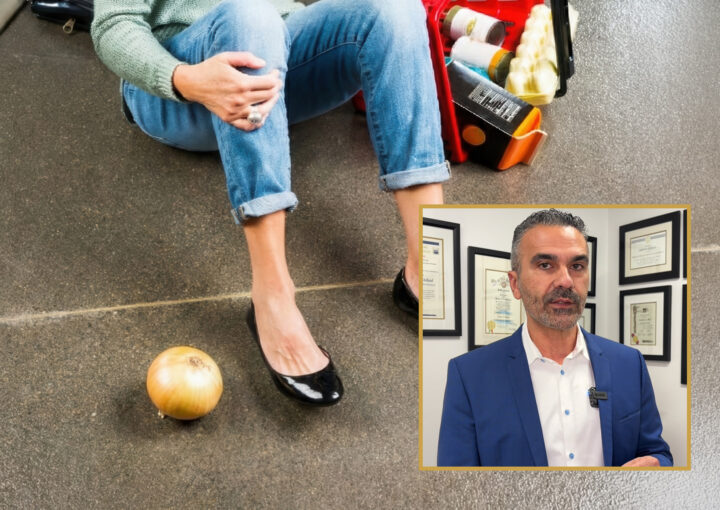When someone you love is seriously injured, life can change in an instant. While much of the focus rightfully goes to the injured person, the emotional toll on their partner is often overlooked. The strain of seeing someone you love in pain—combined with the changes to your relationship, home life, and future—can feel overwhelming.
The law recognizes this quiet but impactful category of damages. It’s called loss of consortium, and it offers a way for spouses and registered domestic partners to seek justice for the emotional and relational harm they endure after their loved one is injured.
Here are five important things to know about this type of claim.
1. Loss of Consortium Is About Relationship Harm, Not Financial Loss
Loss of consortium speaks to the pain of losing the closeness and connection you once shared with your spouse or partner. This may mean:
- A loss of emotional intimacy and companionship
- Struggles with communication and support
- The absence of physical closeness and shared routines
- The quiet burden of taking on more than one role in your relationship
It does not cover lost income, medical expenses, or the cost of caregiving. Instead, it addresses the emotional toll a serious injury can have on the non-injured partner, whose life is often turned upside down as a result.
2. Loss of Consortium Claims Are Limited to Certain Relationships
Not everyone affected by a loved one’s injury can file a loss of consortium claim. In many states—including California—only spouses or registered domestic partners are eligible to bring this type of claim.
Unfortunately, the following relationships are not currently eligible under California law:
- Unmarried romantic partners (even if living together)
- Fiancés or long-term companions
- Children or stepchildren of the injured person
- Other family members, such as siblings or parents
If you’re unsure about your eligibility, speaking with a personal injury attorney can help clarify your options based on the specifics of your relationship and local laws.
3. Your Claim Is Connected to Your Partner’s Injury Case
A loss of consortium claim is a “derivative” claim—meaning it depends entirely on the success of your spouse or partner’s personal injury case. If their case is not successful, you cannot recover loss of consortium damages, even if the impact on your relationship has been significant.
Here’s what this means in practice:
- Your partner must prove their personal injury claim, including that another party was negligent and caused their injury
- Your claim is not filed as a standalone case—it is part of or closely connected to your partner’s lawsuit
- If the injury claim fails, your loss of consortium claim will also be denied
- Both claims should be supported by a cohesive legal strategy to ensure your story is fully represented
Because of this close legal connection, it’s crucial to work with a personal injury attorney who understands how to advocate for both the injured individual and their loved ones.
4. You’ll Need to Share How the Injury Changed Your Relationship
This part can be difficult—but it’s essential. To receive compensation, you must show:
- That you were legally married or registered as domestic partners
- That someone else’s carelessness caused your partner’s injury
- That you’ve experienced a meaningful loss in your relationship—whether it’s emotional, physical, or practical
- That the injury is the reason those changes occurred
You may be asked to share personal aspects of your relationship, which can feel vulnerable—but with the right legal support, you don’t have to go through it alone.
5. These Cases Can Be Emotional—But You Deserve to Be Heard
Grieving the relationship you once had is valid—and you’re not alone. Loss of consortium claims often involve deeply personal topics, and the legal process can feel emotionally intense. However, pursuing a claim is not just about compensation—it’s about recognizing the impact this injury has had on your life and your partnership.
Here’s what to expect emotionally and legally:
- You may be asked to discuss sensitive aspects of your relationship, including emotional and physical intimacy, communication, and day-to-day dynamics
- The process may feel invasive or vulnerable, but it is a necessary part of telling your story in court or during settlement negotiations
- You’re allowed to feel overwhelmed, hurt, or unsure—this is not just a legal process; it’s a personal one
- The goal is recognition—acknowledgment that your pain is real, that your relationship has changed, and that your loss matters under the law
- While a claim can’t undo what’s been lost, it can help provide justice, closure, and support to begin healing and moving forward
You deserve to be heard, and with the right legal support, you don’t have to go through it alone.
Let Etehad Law Support You Through This
At Etehad Law, we understand that when someone is injured, their loved ones suffer too. If your life and relationship have been altered due to your spouse’s injury, you may have a right to compensation for loss of consortium. We’re here to guide you through the legal process with care, compassion, and clarity—so you don’t have to navigate this difficult time alone.





